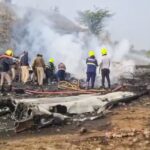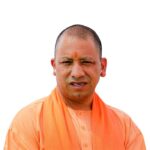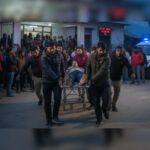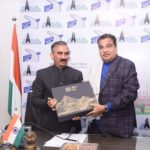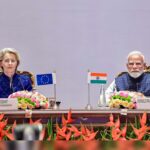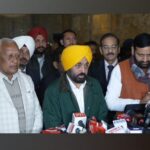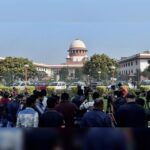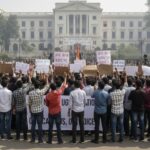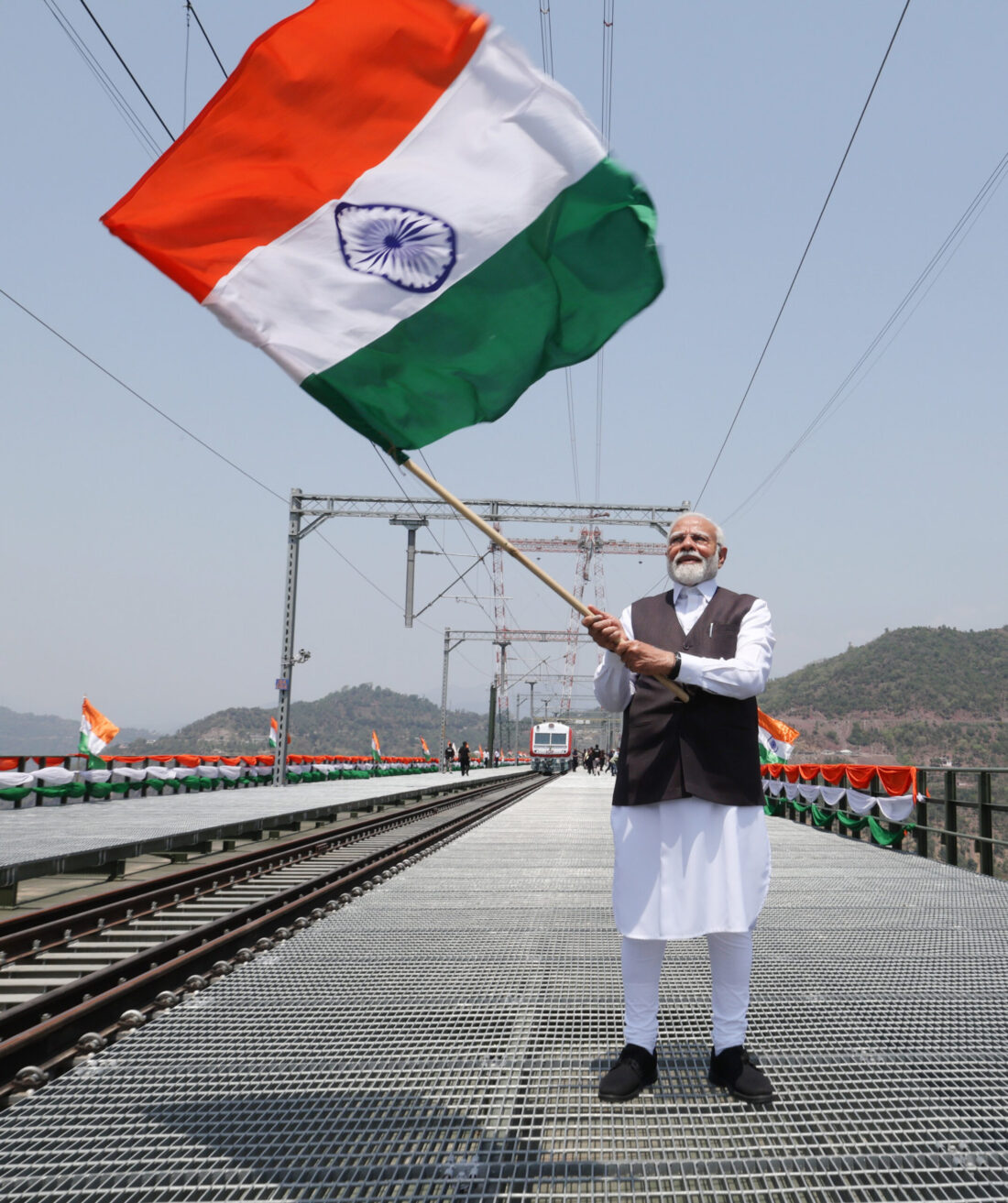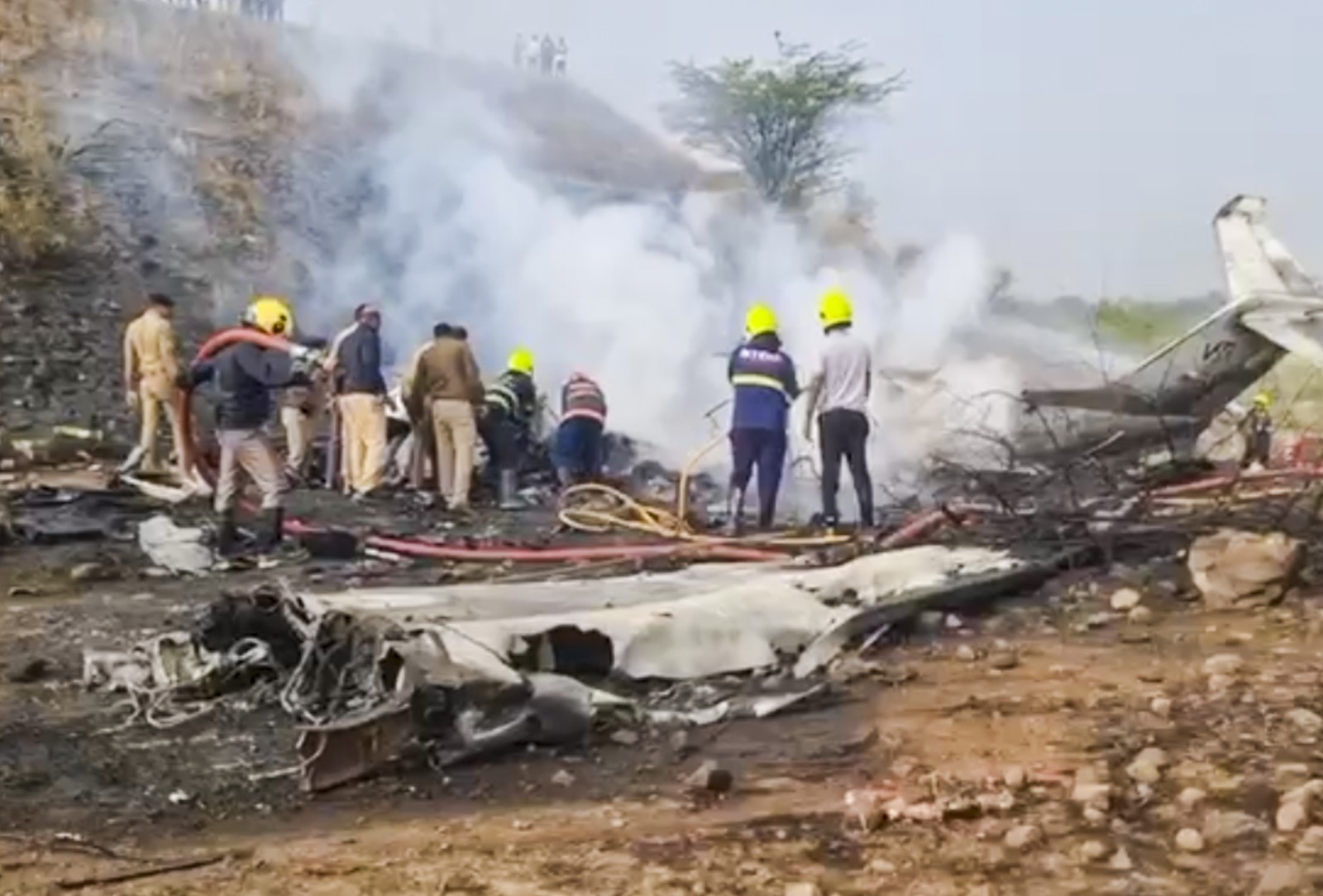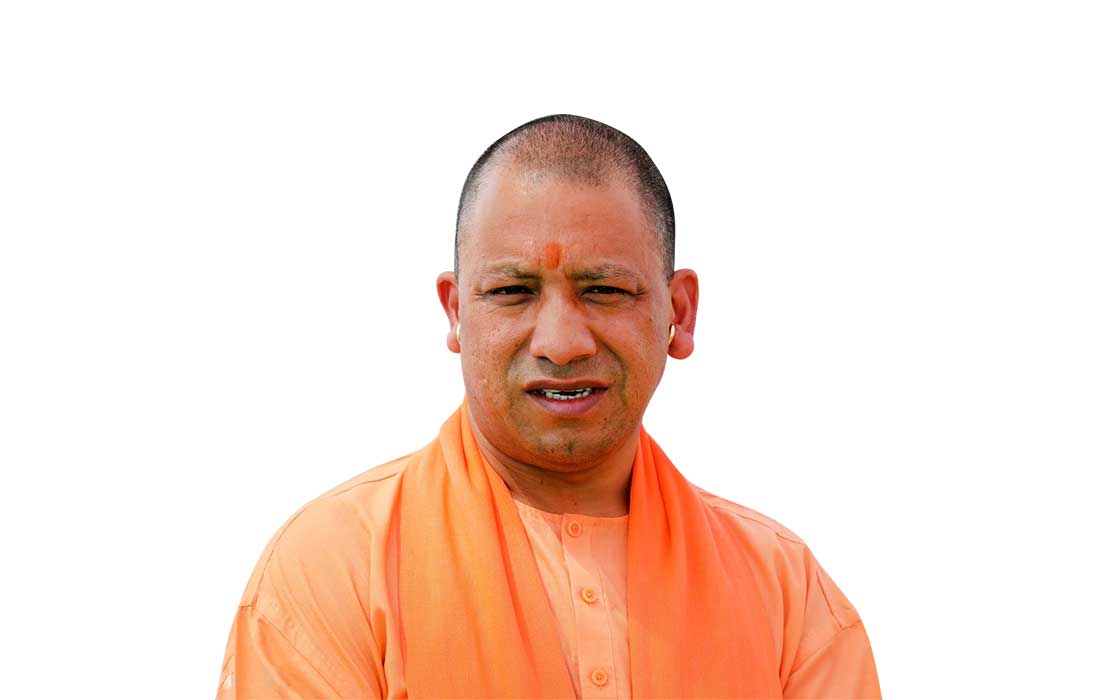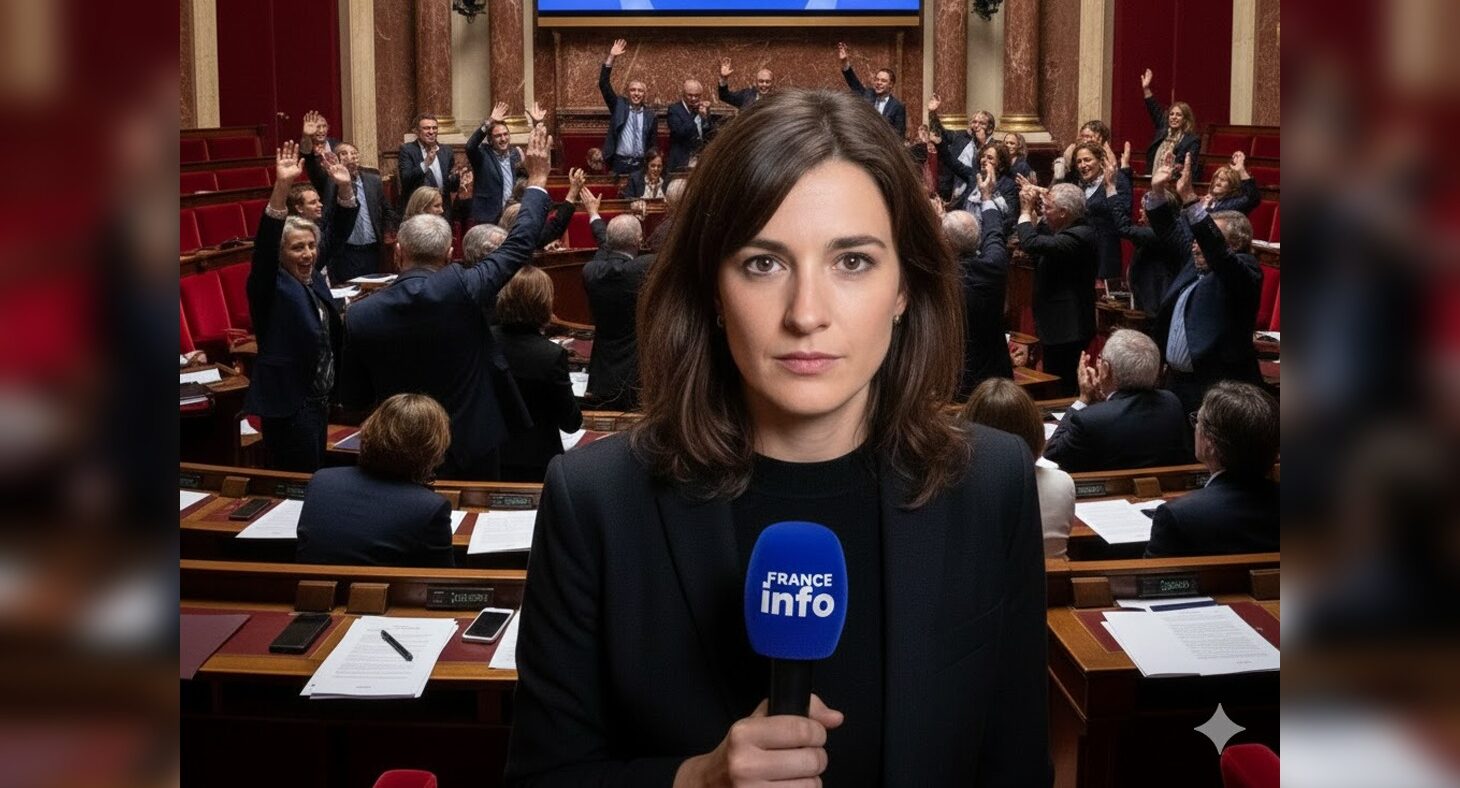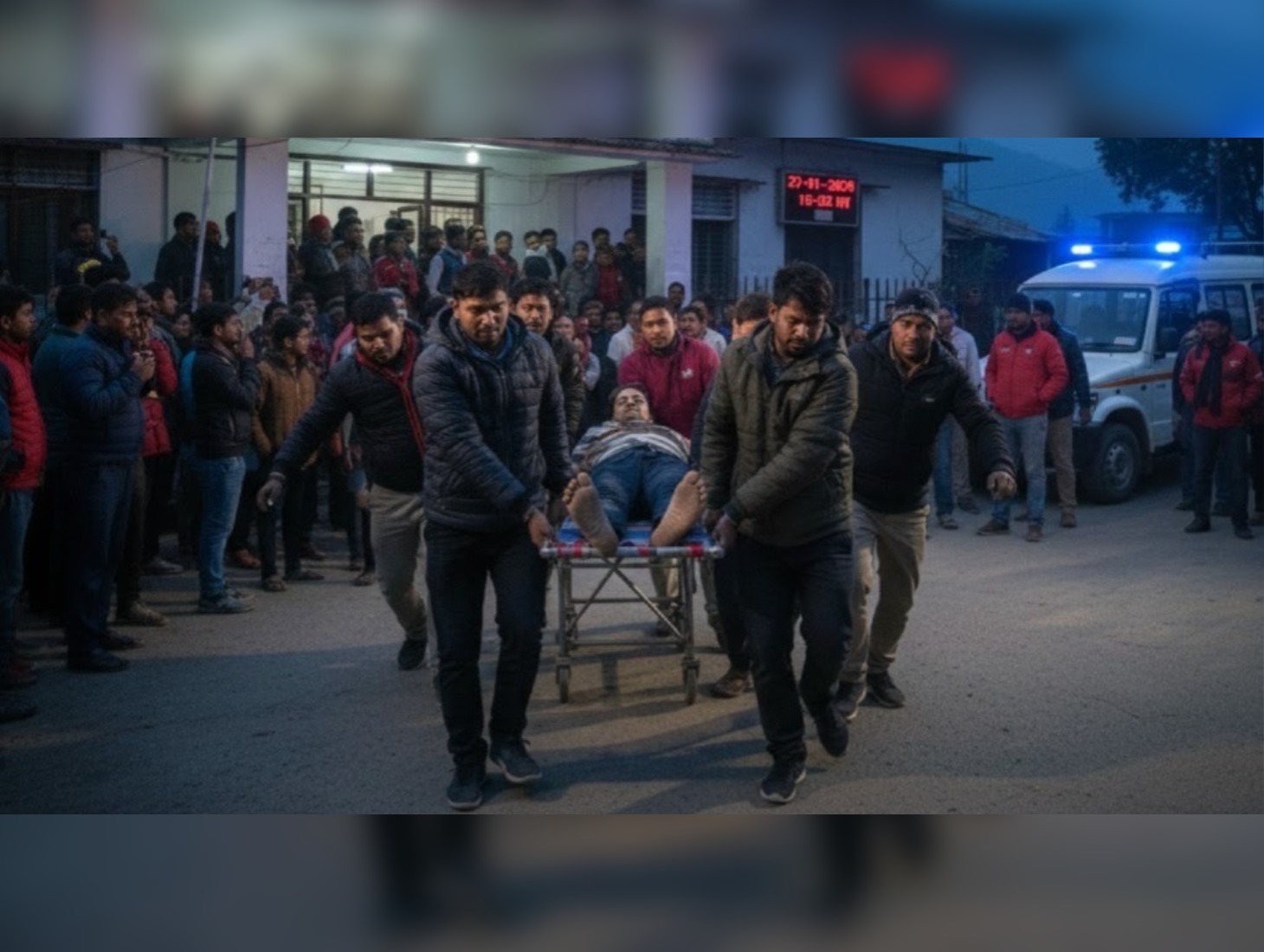The North News
Katra, June 6
Prime Minister Narendra Modi on Friday laid the foundation stone, inaugurated and dedicated to the nation multiple development projects worth over Rs 46,000 crore at Katra in Jammu and Kashmir today. Saluting the land of the brave Veer Zorawar Singh, he remarked that today’s event is a grand celebration of India’s unity and determination. Modi said that with the blessings of Mata Vaishno Devi, the Valley of Kashmir is now connected to India’s vast railway network. “We have always invoked Maa Bharati with deep reverence, saying ‘from Kashmir to Kanyakumari,’ today, this has become a reality even in our railway network”, exclaimed the Prime Minister, emphasising that the Udhampur-Srinagar-Baramulla Rail Line Project is not just a name but a symbol of Jammu and Kashmir’s new strength and a testament to India’s growing capabilities.
In line with the commitment to boost rail infrastructure and connectivity in the region, he inaugurated the Chenab and Anji rail bridges and flagged off Vande Bharat Trains, enhancing connectivity within Jammu and Kashmir. Additionally, Modi also laid the foundation stone for a new medical college in Jammu, reinforcing the government’s commitment to strengthening healthcare facilities in the region, stating that ₹46,000 crore worth of projects will accelerate development in Jammu and Kashmir, driving progress and prosperity. The Prime Minister extended his best wishes and congratulated the people on this new era of growth and transformation.
Underlining that generations in Jammu and Kashmir had long dreamt of railway connectivity, Modi said today, that dream has become a reality. Referring to a recent statement by former Chief Minister Omar Abdullah, the Prime Minister noted that even as a student in seventh or eighth grade, Abdullah had been anticipating the completion of this project. Modi emphasized that the fulfillment of this long-awaited aspiration marks a historic moment for millions of people in Jammu and Kashmir, paving the way for enhanced connectivity and progress.
Stating that it is a privilege for their government that this ambitious railway project gained momentum during their tenure and has now been successfully completed, Modi emphasized the challenges encountered, like the difficult terrain, extreme weather conditions, and falling rocks in the mountains, making the project immensely tough and demanding. However, he remarked that their government has consistently chosen to face challenges head-on and overcome them with determination.
The Prime Minister noted that numerous all-weather infrastructure projects underway in Jammu and Kashmir exemplify this commitment. He cited the recently opened Sonmarg Tunnel and his experience traveling over the Chenab Bridge and Anji Bridge as remarkable milestones. Modi lauded the engineering brilliance and unwavering dedication of India’s engineers and workers, stating that the Chenab Bridge, the world’s tallest railway arch bridge, stands as a testament to India’s ambition. He observed that while people travel to Paris to see the Eiffel Tower, the Chenab Bridge surpasses it in height, making it not only a crucial infrastructure achievement but also an emerging tourist attraction. Similarly, the Prime Minister described the Anji Bridge as an engineering marvel, being India’s first cable-supported railway bridge. He asserted that these structures are not just steel and concrete, but living symbols of India’s strength, standing tall in the rugged Pir Panjal mountains. Modi declared that these achievements represent India’s vision for a developed nation, proving that as grand as India’s dream of progress is, so too is its resilience, capability, and determination. Above all, he emphasized that pure intentions and relentless dedication are the driving forces behind India’s transformation.
Emphasizing that both Chenab Bridge and Anji Bridge will serve as catalysts for prosperity in Jammu and Kashmir, the Prime Minister said, “these landmark projects will not only boost tourism but also benefit various sectors of the economy, creating new opportunities for businesses and industries”. He highlighted that enhanced rail connectivity between Jammu and Kashmir will open new doors for local entrepreneurs, driving economic growth. Modi noted that Kashmir’s apples will now reach major markets across India at lower costs, making trade more efficient. Furthermore, dry fruits and Kashmir’s renowned Pashmina shawls, along with other traditional handicrafts, will now be easily transported to every corner of the country, strengthening the region’s artisanal industry. The Prime Minister stated that this improved connectivity will also make travel more convenient for the people of Jammu and Kashmir, allowing smoother movement across different parts of India.
Prime Minister Modi shared a touching comment from a student in Sangaldan, who stated that until now, only those who had traveled outside their village had seen a train in real life. Most villagers had only watched trains in videos, unable to believe that soon, a real train would pass right before their eyes. The Prime Minister also mentioned that many residents are already memorizing train schedules, excited about the new connectivity. He highlighted a thoughtful remark from a young girl who stated, now, the weather will no longer decide whether the roads remain open or closed. This new train service will help people in all seasons. “Jammu and Kashmir as the crown of Mother India, adorned with dazzling jewels—each representing the region’s immense strength and beauty”, described the Prime Minister, praising its ancient culture, traditions, spiritual consciousness, breathtaking landscapes, medicinal herbs, flourishing orchards, and vibrant youth talent, stating that these qualities shine like precious gemstones in India’s crown. Having visited Jammu and Kashmir for decades, the Prime Minister affirmed his deep understanding of the region’s potential and reiterated his dedication to the continuous development and upliftment of Jammu and Kashmir, ensuring prosperity for its people.
“Jammu and Kashmir has long been a pillar of India’s education and cultural heritage”, affirmed the Prime Minister. He added that as India establishes itself as a global knowledge hub, the growing participation of Jammu and Kashmir in this transformation. Shri Modi pointed out the presence of premier institutions such as IIT, IIM, AIIMS, and NIT, alongside Central Universities in Jammu and Srinagar, strengthening academic excellence in the region. He also noted the expansion of the research ecosystem, further enhancing innovation and learning opportunities.
The Prime Minister emphasized that remarkable advancements have been made in healthcare, with two state-level cancer institutes established in recent years. Over the last five years, seven new medical colleges have been opened, significantly benefiting both patients and aspiring medical students. Modi highlighted that MBBS seats in Jammu and Kashmir have risen from 500 to 1,300, ensuring greater access to medical education. Additionally, the Reasi district is set to receive a new medical college, enhancing healthcare facilities for the region. The Prime Minister praised the Shri Mata Vaishno Devi Institute of Medical Excellence, describing it as not only a modern hospital but also an embodiment of India’s rich tradition of philanthropy. He also lauded the contributions of devotees from across India, whose donations helped establish the institution. Extending his best wishes, Modi congratulated the Shri Mata Vaishno Devi Shrine Board for its dedicated efforts in this noble endeavor. He also announced that the hospital’s capacity would be expanded from 300 to 500 beds, further improving medical services. The Prime Minister noted that this development would provide greater convenience to devotees visiting Mata Vaishno Devi in Katra.
Highlighting that their government has now completed 11 years in office, dedicating this period to uplifting the poor and empowering citizens, the Prime Minister outlined several key welfare initiatives that have transformed millions of lives. He listed out the Pradhan Mantri Awas Yojana, which has fulfilled the dream of 4 crore poor families by providing pucca houses. Ujjwala Yojana, which has helped eliminate smoke from 10 crore households, protecting the health of women and children. Ayushman Bharat, which enabled 50 crore underprivileged citizens to receive free healthcare up to ₹5 lakh. He added that Pradhan Mantri Garib Kalyan Anna Yojana, ensured food security, filling every plate with adequate nutrition while the Jan Dhan Yojana, helped open banking access for over 50 crore poor individuals, bringing them into the financial system. The Prime Minister further mentioned Saubhagya Yojana, which delivered electricity to 2.5 crore families living in darkness and Swachh Bharat Mission, under which 12 crore toilets were built, eliminating the challenge of open defecation. He added that the Jal Jeevan Mission provided tap water to 12 crore households, easing the burden on women, while the PM Kisan Samman Nidhi offered direct financial support to 10 crore small farmers, strengthening rural India.
Prime Minister Modi stated that over 25 crore people have successfully overcome poverty in the last 11 years, transitioning into the neo-middle class. He emphasized that the government remains committed to strengthening both the poor and the emerging middle class, ensuring economic and social security through key reforms. The Prime Minister cited initiatives such as One Rank, One Pension, tax exemption on salaries up to ₹12 lakh, financial support for home buyers, and assistance for affordable air travel, affirming that the government stands shoulder to shoulder with the people, driving progress for all. He added that it was for the first time since independence that their government had worked for the honest, tax-paying middle class.
Underlining that their government is consistently creating new employment opportunities for the youth, with tourism emerging as a significant driver of economic growth and connectivity, Modi highlighted that tourism not only generates jobs but also fosters unity among people. Condemning Pakistan’s repeated attempts to disrupt this progress, the Prime Minister stated that it stands against humanity, social harmony, and economic prosperity. Referring to the April 22 incident in Pahalgam, Modi asserted that Pakistan attacked both Kashmiriyat and humanity, intending to incite violence in India and cripple the earnings of hardworking Kashmiris. He pointed out that this deliberate attack on tourists was meant to sabotage the flourishing tourism industry in Jammu and Kashmir, which had witnessed record-high visitor numbers over the past few years. The Prime Minister remarked that Pakistan’s malicious intent directly impacted local workers, including horse riders, porters, guides, guest house owners, and shopkeepers, aiming to destroy their livelihoods. He praised the courage of young Adil, who stood against terrorists, but tragically lost his life while striving to support his family through honest labor.


